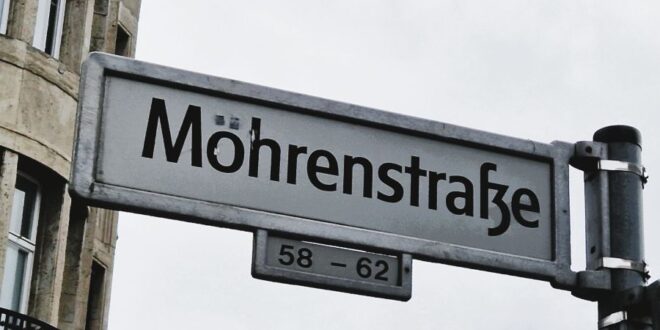Berlin’s district of Mitte has won a protracted legal battle to rename Mohrenstraße, a 300‑year‑old street long criticised for its racist connotations. On 9 July 2025, the Oberverwaltungsgericht (Higher Administrative Court) in Berlin‑Brandenburg dismissed an appeal by local residents, affirming last year’s ruling by the Verwaltungsgericht (Administrative Court) and clearing the way for the name change to become irrevocable.
The contested name, derived from the archaic German word “Mohr”, historically used to derogatorily describe Black-skinned people, had become a flashpoint in debates on racism and colonial legacy. Critics argued the term was at best outdated, and at worst deeply insulting. Supporters of the change, including Mayor of the district of Mitte, Stefanie Remlinger, a member of the Greens, said the street’s renaming represents “a necessary confrontation with Germany’s colonial past and a respectful gesture towards those impacted”.
The district council chose to rename the street Anton‑Wilhelm‑Amo‑Straße, in tribute to an 18th‑century African-born philosopher and legal scholar. Born in the region of today’s Ghana around 1703, Amo was brought to Europe as a child and became the first known Black academic in Germany. He earned his doctorate in philosophy in 1730 and taught at the universities of Halle, Wittenberg and Jena. His doctoral thesis, De iure Maurorum in Europa, defended the rights of Black people in Europe.
Amo’s intellectual legacy is only recently being rediscovered: universities in Halle and Wittenberg are staging exhibitions about his life; Stuttgart renamed a square in his honour; and in 2020, Google celebrated him with a doodle.
Opponents of the renaming, mainly residents living along the street, argued that the original name was not intended as racist, but rather reflected historical ties and should be remembered and interpreted, not removed. They argued the renaming heralds “constitutional violations” and imposes bureaucratic and financial burdens on locals. However, the courts emphasised that street names are public assets managed in the public interest, and only a narrow review applies in such cases—the appellants must prove arbitrary or capricious handling, which the courts found was not the case.
Across Germany, initiatives are reevaluating place names with colonial associations, Mohrenstraße is often referred to as “M‑Straße” in media to highlight that history. In 2020, amid the global response to the murder of George Floyd and renewed Black Lives Matter activism, Berlin’s public transport operator even proposed renaming the U‑Bahnhof station though that particular effort was halted over concerns about the replacement name.
Now that the legal hurdles have cleared, Berlin-Mitte can proceed with implementing the change. Officials plan a public inauguration in partnership with Afro-German groups like Initiative Schwarzer Menschen in Deutschland (ISD) and Each One Teach One. New signs will be installed, local addresses updated and a broader conversation about the city’s commemorative culture and colonial legacy will continue.
Vivian Asamoah
 THE AFRICAN COURIER. Reporting Africa and its Diaspora! The African Courier is an international magazine published in Germany to report on Africa and the Diaspora African experience. The first issue of the bimonthly magazine appeared on the newsstands on 15 February 1998. The African Courier is a communication forum for European-African political, economic and cultural exchanges, and a voice for Africa in Europe.
THE AFRICAN COURIER. Reporting Africa and its Diaspora! The African Courier is an international magazine published in Germany to report on Africa and the Diaspora African experience. The first issue of the bimonthly magazine appeared on the newsstands on 15 February 1998. The African Courier is a communication forum for European-African political, economic and cultural exchanges, and a voice for Africa in Europe.

































